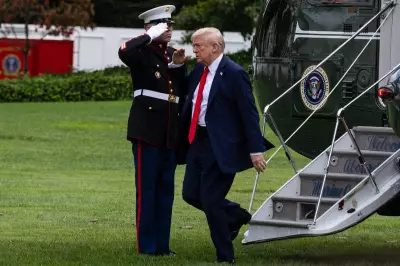
In a move that sets the stage for a potentially historic political battle, Minnesota Governor Tim Walz has officially declared his intention to run for an unprecedented third term in 2026. The Democratic-Farmer-Labor Party leader confirmed his decision to supporters, framing the upcoming campaign as crucial for the state's future direction.
The 61-year-old former teacher and congressman has led the North Star State since 2019, overseeing significant policy shifts including the legalisation of recreational cannabis, substantial education funding increases, and the implementation of paid family leave.
Building on Progressive Achievements
Governor Walz's announcement emphasised continuity and building upon his administration's accomplishments. "We've made tremendous progress, but our work isn't finished," Walz stated during his announcement. "From education and healthcare to economic development and climate action, Minnesota is leading the way."
Political analysts note that a successful third-term bid would make Walz only the second Minnesota governor to achieve this feat since the state eliminated its two-term limit in the late 1950s.
Political Landscape and Challenges
The governor's decision comes amid a shifting political environment. While Minnesota has trended Democratic in recent statewide elections, Republicans have made significant gains in rural areas and are expected to mount a vigorous challenge.
Potential Republican contenders include former congressman and 2022 gubernatorial nominee Scott Jensen, who narrowly lost to Walz in the previous election, and several state legislators who have been critical of the governor's policies.
Walz's campaign is expected to focus on his administration's economic record, including Minnesota's low unemployment rate and budget surplus, while likely facing criticism over crime rates and taxation policies from opposition parties.
The 2026 gubernatorial race is already being flagged as one of the most closely watched state-level contests in the midterm election cycle, with potential implications for national political strategies.





